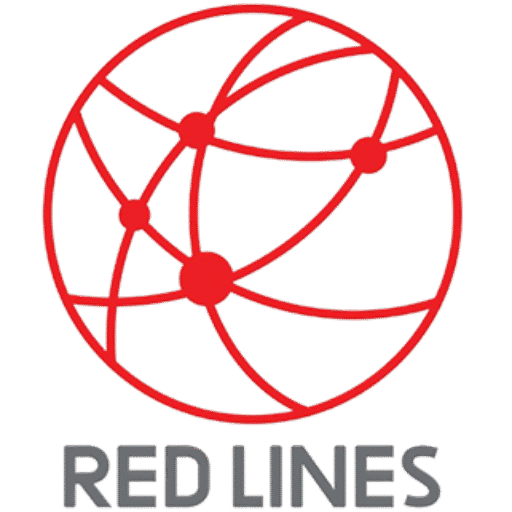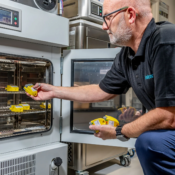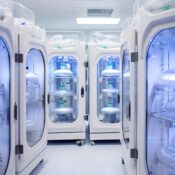Saudi Arabia’s healthcare sector is undergoing a major transformation as part of Vision 2030, with a strong focus on expanding pharmaceutical manufacturing, logistics, and distribution networks. The Kingdom’s goal is to improve healthcare services, ensure patient safety, and position itself as a regional hub for pharmaceutical innovation. Achieving these ambitions requires not only investment in infrastructure but also strict attention to the smallest details—especially the role of temperature mapping studies.
At Redlines (www.Redlines.sa), we specialize in delivering advanced temperature mapping study services across Saudi Arabia, Jeddah, Dammam, and Riyadh, helping the pharmaceutical industry ensure compliance, efficiency, and product integrity.
The Growing Pharmaceutical Industry in Saudi Arabia
With rapid investments in local production and international partnerships, Saudi Arabia’s pharmaceutical industry is growing faster than ever before. This includes new manufacturing plants, state-of-the-art warehouses, and expanded distribution fleets.
However, the pharmaceutical supply chain is highly sensitive. Most medicines, vaccines, and biologics must be stored and transported within strict temperature ranges. A small deviation—even a few degrees—can compromise the effectiveness of a drug, posing risks to patient health and financial losses for providers.
This is where temperature mapping studies play a crucial role, ensuring that every step of the pharmaceutical supply chain—storage, transport, and delivery—remains compliant and reliable.

What is a Temperature Mapping Study?
A temperature mapping study involves placing calibrated sensors throughout a facility (such as warehouses, cold rooms, or vehicles) to monitor how temperature and humidity vary over time. The data collected reveals:
- Hotspots or cold spots within storage areas.
- Weaknesses in cooling systems or insulation.
- The impact of seasonal temperature changes, especially in Saudi Arabia’s harsh desert climate.
By identifying risks before they turn into problems, temperature mapping studies ensure that pharmaceuticals are always stored in conditions that guarantee safety and efficacy.
Why Temperature Mapping is Vital for Saudi Arabia’s Pharmaceutical Growth
1. Compliance with International Standards
Saudi Arabia’s pharmaceutical sector must adhere to global standards such as Good Distribution Practices (GDP) and Good Manufacturing Practices (GMP). A temperature mapping study provides documented evidence that facilities in Riyadh, Jeddah, and Dammam meet these requirements.
2. Protecting Patient Safety
Incorrect storage conditions can weaken medicines or vaccines, making them less effective. Through temperature mapping studies, hospitals, pharmacies, and logistics providers ensure that patients receive safe and reliable treatments.
3. Reducing Financial Risks
Pharmaceutical products are high-value goods. Spoiled stock due to poor temperature control can result in huge financial losses. With temperature mapping studies, companies gain the data needed to optimize cooling systems and avoid waste.
4. Supporting Vision 2030 Goals
As Saudi Arabia advances its healthcare infrastructure, temperature mapping studies play a key role in building trust in local pharmaceutical capabilities. By ensuring quality and safety, they help the Kingdom move closer to its Vision 2030 target of becoming a global leader in healthcare innovation.
5. Future-Proofing Supply Chains
With demand for advanced medicines and biologics expected to grow, resilient supply chains are essential. Temperature mapping studies provide the insights needed to adapt warehouses, transport fleets, and distribution hubs to future challenges.
Redlines: Your Partner in Precision
At Redlines (www.Redlines.sa), we provide expert temperature mapping study services in Saudi Arabia, Jeddah, Dammam, and Riyadh. Our team uses advanced monitoring technology to deliver clear, actionable insights that help pharmaceutical companies strengthen their operations.
Our services include:
- Comprehensive temperature mapping studies for warehouses, cold rooms, and delivery fleets.
- Calibration and validation of monitoring systems.
- Recommendations for energy efficiency and system optimization.
- Compliance support with international and Saudi regulations.
With years of experience, we help ensure that the Kingdom’s expanding pharmaceutical industry achieves world-class standards of safety, efficiency, and reliability.
Conclusion
As Saudi Arabia works toward its Vision 2030 healthcare goals, building a strong pharmaceutical sector is essential. But growth must be matched by precision—and that precision begins with temperature mapping studies.
By safeguarding medicines from production to patient, temperature mapping studies protect health, reduce risks, and strengthen supply chains across Riyadh, Jeddah, Dammam, and all of Saudi Arabia.
At Redlines, we are proud to be a trusted partner in this transformation, helping to ensure that Saudi Arabia’s pharmaceutical industry thrives with resilience, compliance, and care.
For expert support, visit www.Redlines.sa and discover how our temperature mapping study services can future-proof your pharmaceutical operations.













